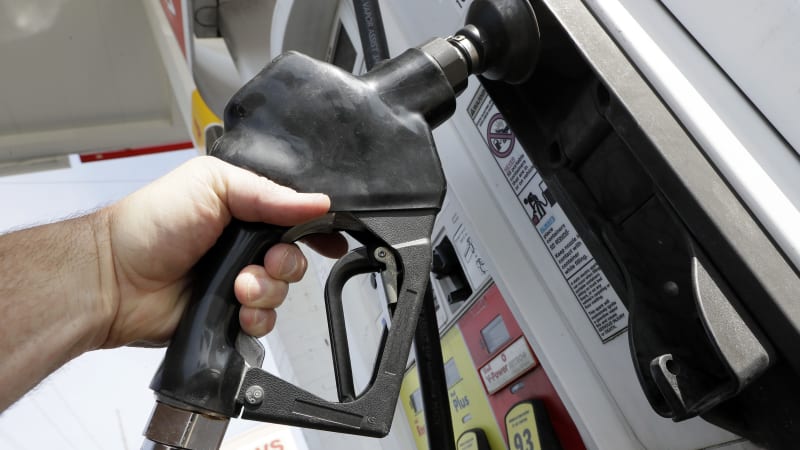4 automakers and California agree to emissions standards compromise
https://ift.tt/32RhtQM

WASHINGTON — Ford, BMW, Volkswagen AG and Honda said on Thursday they have reached a voluntary agreement with the state of California to adopt compromise vehicle emissions rules.
The four major automakers’ agreement to recognize California’s legal authority to set vehicle rules is at odds with a White House plan to strip the state of that right.
“Ensuring that America’s vehicles are efficient, safe and affordable is a priority for us all,” the automakers said in a joint statement that described the accord with California as a move to maintain a nationwide set of fuel efficiency requirements.
Mary Nichols, who chairs the California Air Resources Board, told Reuters in an interview on Wednesday that the four automakers sought regulatory certainty and had agreed not to legally challenge the state’s vehicle regulatory authority.
“They didn’t want to face the expense, distraction and the bad publicity that comes from being part of a big rollback on clean cars,” she said.
The Trump administration in August 2018 proposed revoking California’s legal right to impose its own state emissions standards or require a rising number of electric vehicles. The Trump administration argues that federal law should preempt California from setting its own emissions rules.
As part of that plan, the U.S. Environmental Protection Agency and National Highway Traffic Safety Administration backed freezing emissions requirements for new cars and trucks at 2020 levels through 2026. The proposal is not expected to go to the White House for final review for at least several more weeks, people briefed on the matter said.
The Obama-era rules adopted in 2012 called for a fleetwide fuel efficiency average of 46.7 miles per gallon by 2025, with average annual increases of about 5 percent, compared with 37 mpg by 2026 under the Trump administration’s preferred option.
Under the compromise struck with the four automakers, the stringency of the requirements would increase at a nationwide average annual rate of 3.7% annually starting in the 2022 model year through 2026, and 1% of that annual improvement could be covered by credits awarded for building electrified vehicles.
Aside from extending credits for building electric, plug-in hybrid and hydrogen fuel vehicles, the deal also hikes the cap for winning credits for fuel efficiency improvements not captured by traditional testing. The compromise would also remove a requirement to account for upstream emissions of fuels.
The proposal would allow automakers to adopt the California compromise and operate under one set of national rules.
“A 50-state solution has always been our preferred path forward, and we understand that any deal involves compromise,” the automakers’ joint statement said.
“These terms will provide our companies much-needed regulatory certainty by allowing us to meet both federal and state requirements with a single national fleet, avoiding a patchwork of regulations while continuing to ensure meaningful greenhouse gas emissions reductions.”
On June 6, 17 major automakers wrote a letter to President Donald Trump and California Governor Gavin Newsom seeking to revive talks and urging a compromise “midway” between both sides to avoid “an extended period of litigation and instability.”
The White House quickly rejected that effort, and automakers and California launched private talks that led to Thursday’s announcement.
Automakers credit Trump with reopening the requirements after the Obama administration in its final weeks had sought to lock in the requirements through 2025. In White House meetings, they have urged Trump officials to reach a deal rather than risk years of legal battles that would leave them in limbo.
Nichols said under the compromise deal the White House could still claim “victory” because it “slowed down the pace” of required fuel economy improvements. She added California is getting “substantially the same results in terms of getting cleaner cars onto the road, but it makes it happen a year later.”
Automakers concede privately that the proposal may not prompt the White House to restart talks.
Newsom said in a statement that the deal will “make the air cleaner and safer for us all … I now call on the rest of the auto industry to join us, and for the Trump administration to abandon its regressive proposal and do what is right for our economy, our people, and our planet.”
A dozen U.S. states have adopted California’s vehicle emissions rules covering more than a third of all U.S. sales, and California, the most populous U.S. state accounting for about 12% of U.S. vehicle sales, would certify automakers in compliance with its rules if it adopted the compromise.
Nichols said other automakers could also adopt the compromise if they choose.
Auto Blog
via Autoblog https://ift.tt/1afPJWx
July 25, 2019 at 08:32AM
